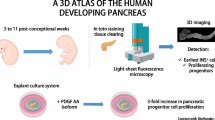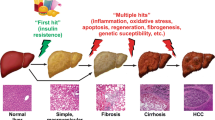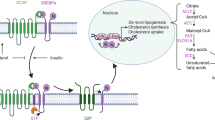Abstract
Background
Regenerating islet-derived 3 (Reg3) is abnormally expressed in several human digestive system diseases, including chronic pancreatitis (CP) and pancreatic cancer (PC).
Aim
The purpose of this study was to clarify the mechanism of the enhanced expression of Reg3 in inflammation-induced PC.
Methods
C57BL/6 mice were treated with caerulein for 6 weeks to induce CP and then injected with pReg3g—a lentivirus system encoding for murine Reg3g—accompanied by dimethylbenzanthracene to induce PC. We detected pancreatic histopathological characteristics, tumor-related gene expression, inflammation-associated pathway activation, serum biochemical indicators, and immunological cell activities.
Results
The mice that developed CP after caerulein treatment were marked by pronounced histologic lesions, elevated serum amylase levels, and activation of inflammation-related pathways. Mice given a high dose of pReg3g developed PC by 16 weeks, with recognizable tumors in the pancreas. While, both the low and high doses of pReg3g produced higher transcription of c-fos, k-ras, cytokeratin-19, and proliferating cell nuclear antigen, and a lower expression of caspase-3 compared to pNEG controls. Additionally, the higher dose of pReg3g increased the expressions of pSTAT3, NFκB (p65), and SOCS3 methylation during PC development. In addition, mice treated with pReg3g displayed higher levels of serum IL10 and TGFβ and suppressed T lymphocyte proliferation and DC function.
Conclusion
The comprehensive analysis suggests enhanced Reg3g expression exacerbates PC in inflammation-associated cancer progression. Reg3g appears to promote CP-related PC in mice through multiple mechanisms, involving enhanced transcription of pancreatic tumor markers, repression of anti-tumor immunity, and activation of STAT3/p65 signal transduction pathways.








Similar content being viewed by others
Abbreviations
- Reg3g:
-
Regenerating islet-derived 3-gamma
- pReg3g :
-
pEZ-Lv201-Reg3g
- pNEG :
-
pEZ-Lv201-NEG
- AP:
-
Acute pancreatitis
- CP:
-
Chronic pancreatitis
- PC:
-
Pancreatic cancer
- IL10:
-
Interleukin-10
- STAT3:
-
Signal transducer and activator of transcription 3
- NFκB:
-
Nuclear factor kappa B
- TGFβ:
-
Transforming growth factor
- SOCS3:
-
Suppressor of cytokine signaling 3
- DNMT1:
-
DNA (cytosine-5)-methyltransferase 1
- DMBA:
-
Dimethylbenzanthracene
- HFD:
-
High fat diet
- ELISA:
-
Enzyme-linked immunoassay
- MSP:
-
Methylation-specific PCR
- RT-PCR:
-
Real-time polymerase chain reaction
- MLR:
-
Mixed lymphocyte reaction
References
Siegel R, Ma J, Zou Z, Jemal A. Cancer statistics, 2014. CA Cancer J Clin. 2014;64:9–29.
Nitsche C, Simon P, Weiss FU, et al. Environmental risk factors for chronic pancreatitis and pancreatic cancer. Dig Dis. 2011;29:235–242.
Raimondi S, Lowenfels AB, Morselli-Labate AM, Maisonneuve P, Pezzilli R. Pancreatic cancer in chronic pancreatitis; aetiology, incidence, and early detection. Best Pract Res Clin Gastroenterol. 2010;24:349–358.
Pedrazzoli S, Pasquali C, Guzzinati S, Berselli M, Sperti C. Survival rates and cause of death in 174 patients with chronic pancreatitis. J Gastrointest Surg. 2008;12:1930–1937.
Goldacre MJ, Wotton CJ, Yeates DG. Cancer and immune-mediated disease in people who have had meningococcal disease: record-linkage studies. Epidemiol Infect. 2009;137:681–687.
Malka D, Hammel P, Maire F, et al. Risk of pancreatic adenocarcinoma in chronic pancreatitis. Gut. 2002;51:849–852.
Corbo V, Beghelli S, Bersani S, et al. Pancreatic endocrine tumours: mutational and immunohistochemical survey of protein kinases reveals alterations in targetable kinases in cancer cell lines and rare primaries. Ann Oncol. 2012;23:127–134.
Haas SL, Ye W, Lohr JM. Alcohol consumption and digestive tract cancer. Curr Opin Clin Nutr Metab Care. 2012;15:457–467.
Li D, Tang H, Hassan MM, Holly EA, Bracci PM, Silverman DT. Diabetes and risk of pancreatic cancer: a pooled analysis of three large case–control studies. Cancer Causes Control. 2011;22:189–197.
Zhang YW, Ding LS, Lai MD. Reg gene family and human diseases. World J Gastroenterol. 2003;9:2635–2641.
Collins M. Regulating with Reg proteins: a new role in Th17 cell-mediated skin inflammation. Immunity. 2012;37:5–7.
Koblas T, Leontovyc I, Zacharovova K, et al. Activation of the Jak/Stat signalling pathway by leukaemia inhibitory factor stimulates trans-differentiation of human non-endocrine pancreatic cells into insulin-producing cells. Folia Biol. 2012;58:98–105.
van Beelen Granlund A, Ostvik AE, Brenna O, Torp SH, Gustafsson BI, Sandvik AK. REG gene expression in inflamed and healthy colon mucosa explored by in situ hybridisation. Cell Tissue Res. 2013;352:639–646.
Choi B, Suh Y, Kim WH, Christa L, Park J, Bae CD. Downregulation of regenerating islet-derived 3 alpha (REG3A) in primary human gastric adenocarcinomas. Exp Mol Med. 2007;39:796–804.
Lasserre C, Christa L, Simon MT, Vernier P, Brechot C. A novel gene (HIP) activated in human primary liver cancer. Cancer Res. 1992;52:5089–5095.
Porterfield M, Zhao P, Han H, et al. Discrimination between Adenocarcinoma and normal pancreatic ductal fluid by proteomic and glycomic analysis. J Proteome Res. 2014;13:395–407.
Wang X, Tu S, Tan J, et al. REG gamma: a potential marker in breast cancer and effect on cell cycle and proliferation of breast cancer cell. Med Oncol. 2011;28:31–41.
Wang J, Zhou H, Han Y, et al. SOCS3 methylation in synergy with Reg3A overexpression promotes cell growth in pancreatic cancer. J Mol Med. 2014;92:1257–1269.
Nata K, Liu Y, Xu L, et al. Molecular cloning, expression and chromosomal localization of a novel human REG family gene, REG III. Gene. 2004;340:161–170.
Pfosser A, El-Aouni C, Pfisterer I, et al. NF kappaB activation in embryonic endothelial progenitor cells enhances neovascularization via PSGL-1 mediated recruitment: novel role for LL37. Stem Cells. 2010;28:376–385.
Marino F, Orecchia V, Regis G, et al. STAT3beta controls inflammatory responses and early tumor onset in skin and colon experimental cancer models. Am J Cancer Res. 2014;4:484–494.
Phesse TJ, Buchert M, Stuart E, et al. Partial inhibition of gp130-Jak-Stat3 signaling prevents Wnt-beta-catenin-mediated intestinal tumor growth and regeneration. Sci Signal. 2014;7:ra92.
Pu X, Guo QX, Long HA, Yang CW. Effects of mTOR-STAT3 on the migration and invasion abilities of hepatoma cell and mTOR-STAT3 expression in liver cancer. Asian Pac J Trop Med. 2014;7:368–372.
Fang S, Liu B, Sun Q, Zhao J, Qi H, Li Q. Platelet factor 4 inhibits IL-17/Stat3 pathway via upregulation of SOCS3 expression in melanoma. Inflammation. 2014;37:1744–1750.
Verma M, Chattopadhyay BD, Kumar S, Kumar K, Verma D. DNA methyltransferase 1(DNMT1) induced the expression of suppressors of cytokine signaling3 (Socs3) in a mouse model of asthma. Mol Biol Rep. 2014;41:4413–4424.
Li Y, Deuring J, Peppelenbosch MP, Kuipers EJ, de Haar C, van der Woude CJ. IL-6-induced DNMT1 activity mediates SOCS3 promoter hypermethylation in ulcerative colitis-related colorectal cancer. Carcinogenesis. 2012;33:1889–1896.
Garg R, Ingle A, Maru G. Dietary turmeric modulates DMBA-induced p21ras, MAP kinases and AP-1/NF-kappaB pathway to alter cellular responses during hamster buccal pouch carcinogenesis. Toxicol Appl Pharmacol. 2008;232:428–439.
Shen J, Gao J, Zhang J, et al. Recombinant human interleukin-1 receptor antagonist (rhIL-1Ra) attenuates caerulein-induced chronic pancreatitis in mice. Biomed Pharmacother. 2012;66:83–88.
Kimura K, Satoh K, Kanno A, et al. Activation of Notch signaling in tumorigenesis of experimental pancreatic cancer induced by dimethylbenzanthracene in mice. Cancer Sci. 2007;98:155–162.
Feng Y, Wang Z, Bao Z, et al. SOCS3 promoter hypermethylation is a favorable prognosticator and a novel indicator for G-CIMP-positive GBM patients. PLoS ONE. 2014;9:e91829.
Lutz MB, Kukutsch N, Ogilvie AL, et al. An advanced culture method for generating large quantities of highly pure dendritic cells from mouse bone marrow. J Immunol Methods. 1999;223:77–92.
Torres-Poveda K, Bahena-Roman M, Madrid-Gonzalez C, et al. Role of IL-10 and TGF-beta1 in local immunosuppression in HPV-associated cervical neoplasia. World J Clin Oncol. 2014;5:753–763.
Wang Y, Deng B, Tang W, Liu T, Shen X. TGF-beta1 secreted by hepatocellular carcinoma induces the expression of the Foxp3 gene and suppresses antitumor immunity in the tumor microenvironment. Dig Dis Sci. 2013;58:1644–1652.
Chakraborty C, Katsumata N, Myal Y, et al. Age-related changes in peptide-23/pancreatitis-associated protein and pancreatic stone protein/reg gene expression in the rat and regulation by growth hormone-releasing hormone. Endocrinology. 1995;136:1843–1849.
Hervieu V, Christa L, Gouysse G, et al. HIP/PAP, a member of the reg family, is expressed in glucagon-producing enteropancreatic endocrine cells and tumors. Hum Pathol. 2006;37:1066–1075.
He G, Karin M. NF-kappaB and STAT3—key players in liver inflammation and cancer. Cell Res. 2011;21:159–168.
He Z, He X, Chen Z, et al. Activation of the mTORC1 and STAT3 pathways promotes the malignant transformation of colitis in mice. Oncol Rep. 2014;32:1873–1880.
Zhang X, Blaskovich MA, Forinash KD, Sebti SM. Withacnistin inhibits recruitment of STAT3 and STAT5 to growth factor and cytokine receptors and induces regression of breast tumours. Br J Cancer. 2014;111:894–902.
Xu X, Gelinas C. The v-Rel oncoprotein complexes with new Rel- and RelA-related proteins in transformed cells. Virology. 1995;207:362–368.
Liu Z, Hazan-Halevy I, Harris DM, et al. STAT-3 activates NF-kappaB in chronic lymphocytic leukemia cells. Mol Cancer Res. 2011;9:507–515.
Shankar E, Vykhovanets EV, Vykhovanets OV, et al. High-fat diet activates pro-inflammatory response in the prostate through association of Stat-3 and NF-kappaB. Prostate. 2012;72:233–243.
Hua Yu, Pardoll D, Jove R. STATs in cancer inflammation and immunity: a leading role for STAT3. Nat Rev Cancer. 2009;9:798–809.
Corcoran RB, Contino G, Deshpande V, et al. STAT3 plays a critical role in KRAS-induced pancreatic tumorigenesis. Cancer Res. 2011;71:5020–5029.
Liou G-Y, Döppler H, Necela B, et al. Macrophage-secreted cytokines drive pancreatic acinar-to-ductal metaplasia through NF-Κb and MMPs. J Cell Biol. 2013;202:563–567.
Hong GU, Kim NG, Ro JY. Expression of airway remodeling proteins in mast cell activated by TGF-beta released in OVA-induced allergic responses and their inhibition by low-dose irradiation or 8-oxo-dG. Radiat Res. 2014;181:425–438.
Jayaraman P, Alfarano MG, Svider PF et al. iNOS expression in CD4+T cells limits T-reg induction by repressing TGFb-1: combined iNOS inhibition and T-reg depletion unmask endogenous anti-tumor immunity. Clin Cancer Res. 2014;20:6439–6451.
Maynard CL, Hatton RD, Helms WS, Oliver JR, Stephensen CB, Weaver CT. Contrasting roles for all-trans retinoic acid in TGF-beta-mediated induction of Foxp3 and Il10 genes in developing regulatory T cells. J Exp Med. 2009;206:343–357.
Acknowledgments
This work was supported by the National Natual Science Foundation of China (Nos. 91229114 and 81273521).
Author information
Authors and Affiliations
Corresponding author
Ethics declarations
Conflict of interest
None of the authors have any conflict of interest to disclose.
Rights and permissions
About this article
Cite this article
Yin, G., Du, J., Cao, H. et al. Reg3g Promotes Pancreatic Carcinogenesis in a Murine Model of Chronic Pancreatitis. Dig Dis Sci 60, 3656–3668 (2015). https://doi.org/10.1007/s10620-015-3787-5
Received:
Accepted:
Published:
Issue Date:
DOI: https://doi.org/10.1007/s10620-015-3787-5




